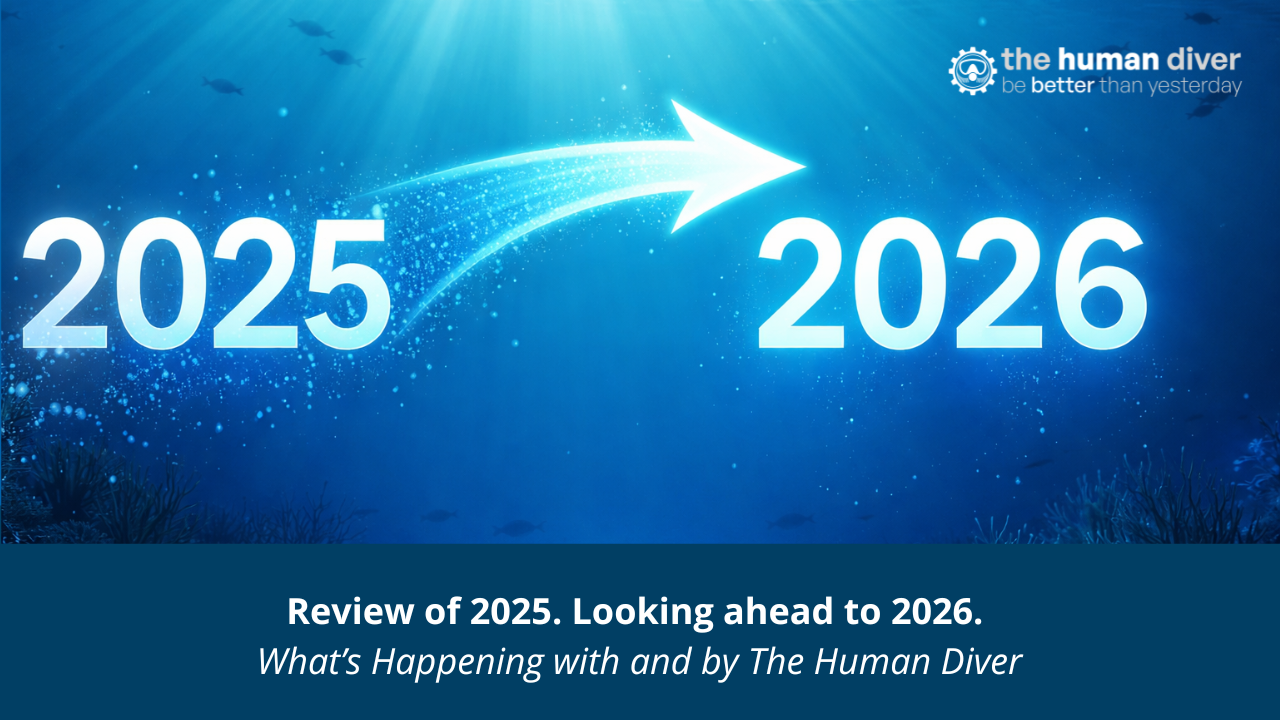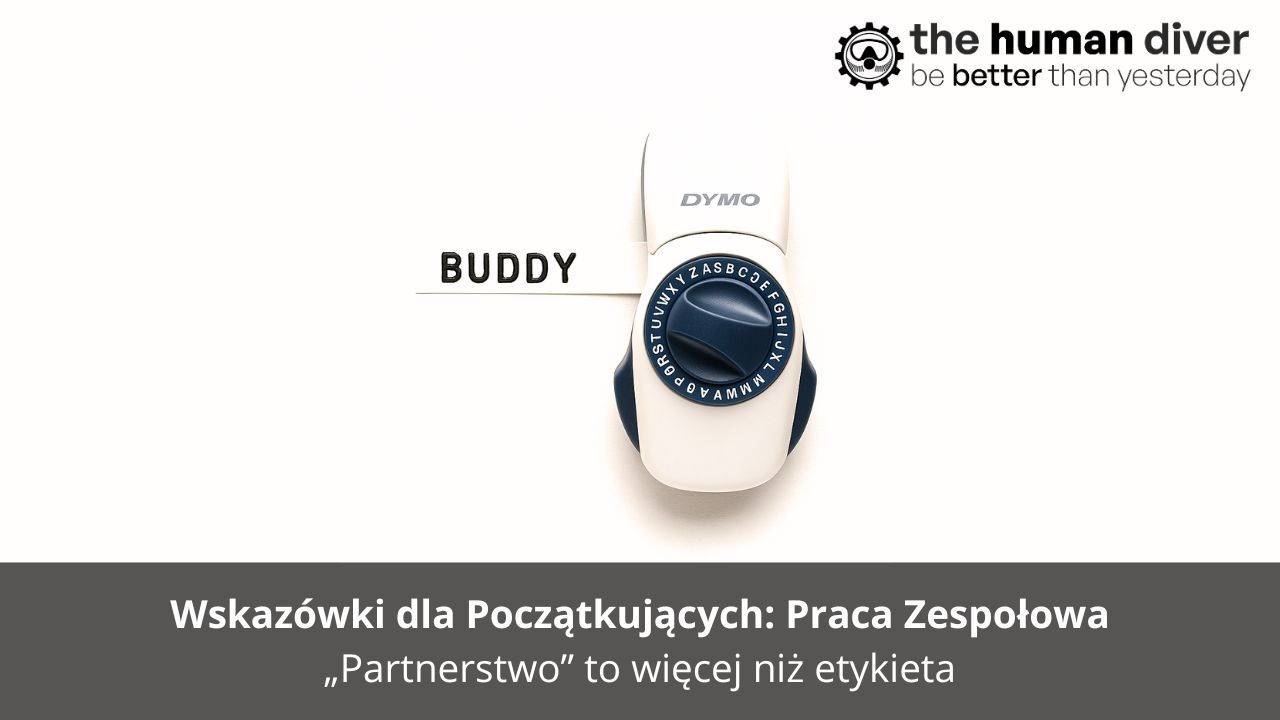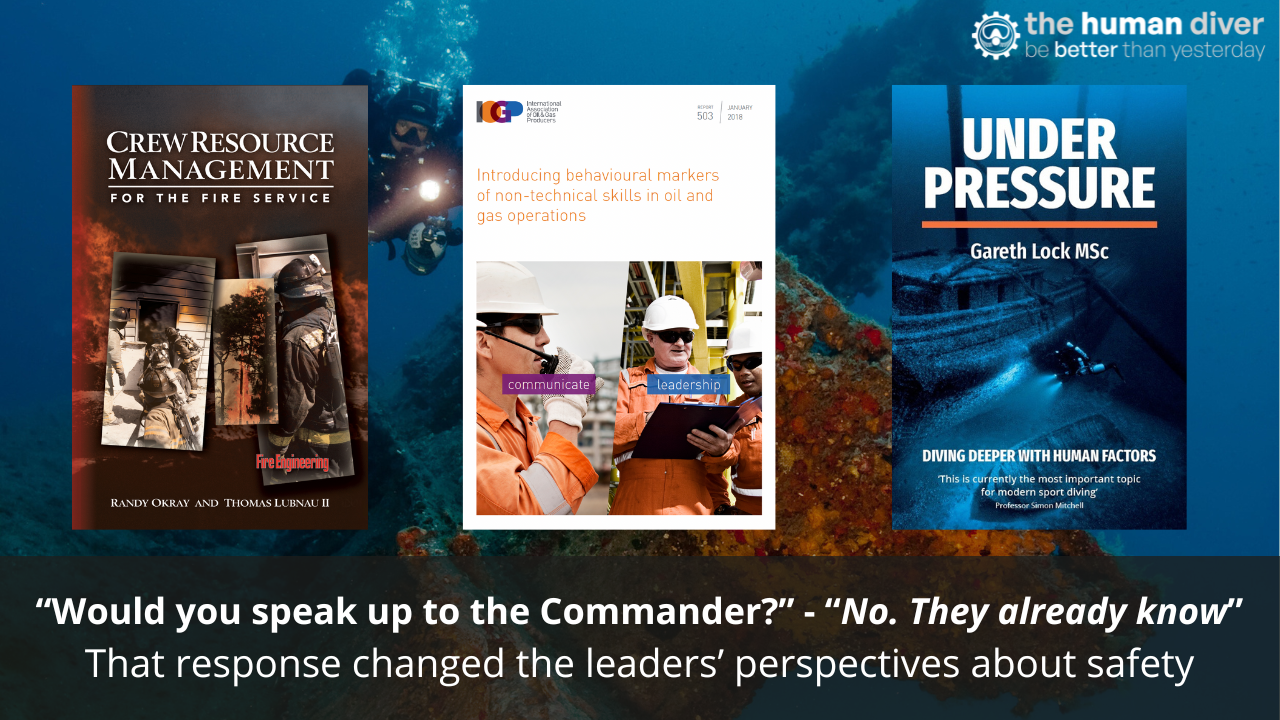
Who is responsible for learning?
Apr 10, 2024Following an interesting discussion on Facebook recently, I’ve been pondering this question. There are two ways to look at it: the instructor dictates what is taught and what the student learns, therefore it’s the instructors responsibility to make sure the student is competent and prepared for autonomous diving (in other words not needing an instructor or divemaster in the water with them). The other way is that it’s the divers job to stay up to date, find any holes in their knowledge and fill them in.
I believe that both of these are correct, at different stages in a divers progression. When someone is new to something, whether that’s diving, learning to drive a car or speaking a foreign language, they don’t know what they don’t know. They have to rely on the instructor giving all the relevant information in order to begin. And there are sadly plenty of divers out there who have been taken advantage of, when an instructor or dive centre has taken the students' money and given them a sub-standard course, or who think they’ve got a cheap deal but only got what they paid for, ie. not a good, complete course. Then we can look at the agencies- are they making sure standards are upheld? Are the standards even correct to begin with? Do the instructors have enough knowledge to be able to pass on all the information that students need? When you take all these factors into account, it’s no surprise that some divers are given their certification but actually shouldn’t have been, and are maybe even unsafe.

When a diver is certified, how do they know what they don’t know? Even the best training course will likely leave some gaps in their knowledge. Even if they’ve spent 7 days learning they won’t be able to remember everything they’ve been taught. So the only way to build on the gaps is by gaining experience. The more dives they do, the more they will learn as they have to deal with new situations and solve problems. It will also help to reinforce things they’ve learnt, after all even if you’ve done something perfectly once there’s no saying that you’ll remember how or what to do after a period of time has passed. Experiences will also start to flag up the gaps, and an enquiring mind will hopefully try to fill them, to learn and discover new things.
But this is where the problem comes in. While some people are happy to keep developing and learning, others take the attitude that once they’ve finished their course they know everything and don’t need to learn anything else. If they need information, they will go and ask for it, but only if absolutely necessary. They aren’t looking for gaps and aren’t interested in learning anything more. I’m sure no one will admit to that but it can be seen frequently from people’s attitude. They may take another course in order to be able to go deeper, dive in a different environment or with a different piece of equipment but they aren’t trying to learn around the subject. This is where the Facebook question comes in. The questioner asked “However, when do we start focusing some of the heat away from an agency/instructor and back onto a diver? There's only so many times you can tell a person that they are ultimately responsible for their own safety, and that includes knowing their own gear.” The example he used is the trend of people asking questions on Facebook, rather than googling it. You can argue that people asking questions on social media are trying to learn. And I would agree. But I understand what the questioner is getting frustrated with. It’s annoying seeing someone ask the same question that gets asked over and over again- why can’t they just search for it? And this might be the answer. Some people like to discover things. Other people like to be shown them. I love reading around a subject, when one thread leads to another question, which then leads to another. But I appreciate that isn’t for everyone. Sometimes you just want a simple, straightforward answer and you want it now. The easiest way to get that answer is by asking someone. But if you don’t have anyone in person to ask, social media will be the answer, because there are hundreds or thousands of people on there who will know.

I live in a popular diving area, surrounded by divers of all levels. When I first moved here, many evenings were spent in the pub talking about every aspect of diving. I heard experienced instructors complaining about what students had done, new divers enthusing about their first dives and tech geeks talking about the latest theories. I lapped up all the free knowledge. But times have changed, and now there aren’t as many nights like that. So new divers don’t have the chance to listen to a techie expounding on what gradient factors are (and which are the best, of course). They can’t hear instructors continuing a conversation that was started earlier that day in the classroom. So they either have to try and seek out these conversations themselves, or turn to easy sources, like social media.
There was a (since deleted) thread from a diver who was complaining that a guide had sent him up to do a safety stop with just his buddy, and he then ran out of air and had to fin hard to the surface. He commented that he’d never done a safety stop by himself before. This diver had just over 50 dives, with his Advanced Open Water certification. How had he reached that level without ever having done a safety stop without a DM or instructor with him? He’d also clearly either forgotten, or never been taught, how to orally inflate his BCD and how and when to drop his weights. It’s easy to blame him and say that after 50 dives he should know all these things. It’s equally easy to blame his instructor for maybe not teaching him well enough in the first place, or the DM for not supervising him closely given his apparent lack of knowledge and skills. But throwing blame around just makes people stop. Stop diving, stop learning, stop talking about mistakes that have happened. The only way we can get over this is by having these discussions instead, in a reasonable way.

Jenny is a full-time technical diving instructor and safety diver. Prior to diving, she worked in outdoor education for 10 years teaching rock climbing, white water kayaking and canoeing, sailing, skiing, caving and cycling, among other sports. Her interest in team development started with outdoor education, using it as a tool to help people learn more about communication, planning and teamwork.
Since 2009 she has lived in Dahab, Egypt teaching SCUBA diving. She is now a technical instructor trainer for TDI, advanced trimix instructor, advanced mixed gas CCR diver and helitrox CCR instructor.
Jenny has supported a number of deep dives as part of H2O divers dive team and works as a safety diver in the media industry.
If you'd like to deepen your diving experience, consider taking the online introduction course which will change your attitude towards diving because safety is your perception, visit the website.
Want to learn more about this article or have questions? Contact us.










